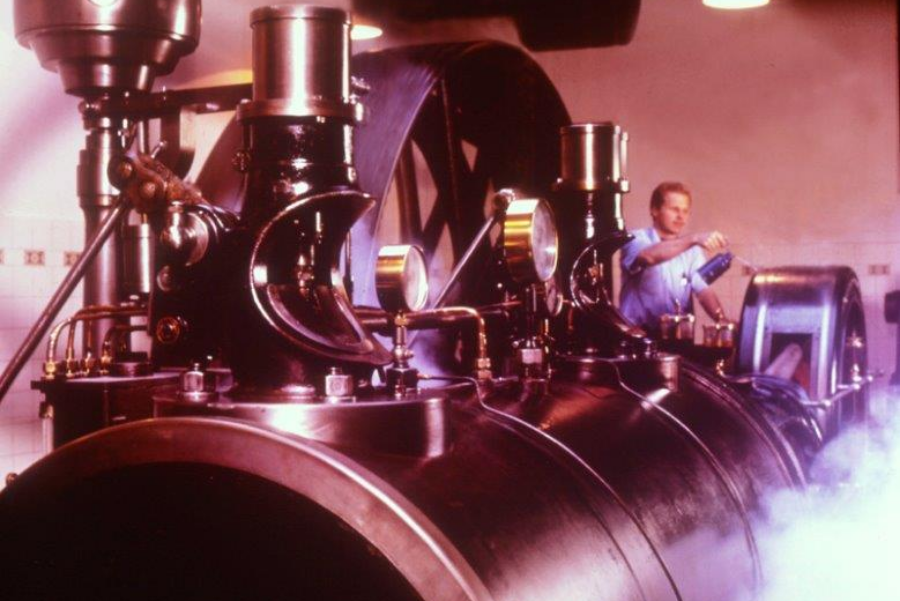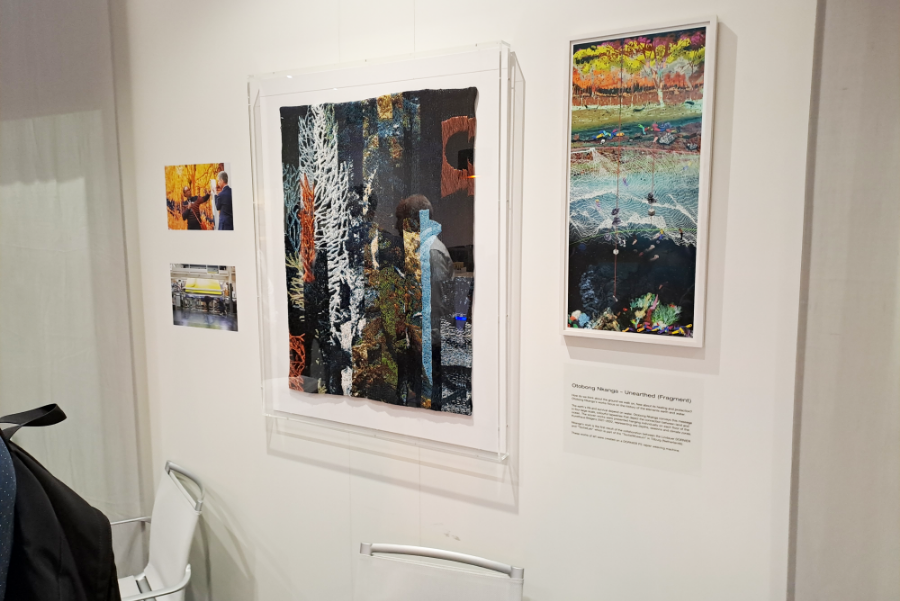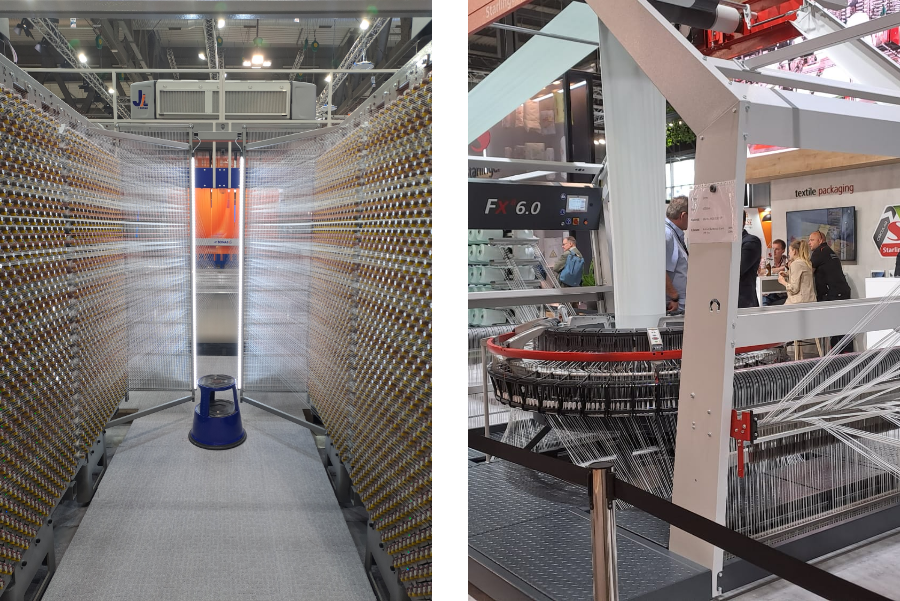Visits to technology fairs such as the leading ITMA always have a clear purpose: to buy new machines, explore innovations and discover techniques that could be valuable for the TextielLab. This year, the emphasis was on efficiency, with the aim of optimising and possibly expanding our machine fleet.
Gerard Kuijpers has been the TextielLab’s technology and implementation manager since 1995, and this year marked his seventh visit to ITMA. Along with Marjan van Oeffelt, weaving product developer, Kuijpers caught up with their regular suppliers, among other things. This was Van Oeffelt’s second visit to ITMA. She was overwhelmed by the size and range of the machines. “You sometimes forget that textiles are still so important globally,” she says. Another memorable aspect of the fair is the simultaneous start-up of all machines, which produces a deafening noise.
Van Oeffelt and Kuijpers have both seen the TextielLab’s mechanical capabilities change over the years. When Kuijpers came on board in 1995, there was not a single computerised machine in the lab. Van Oeffelt says of the early days: “When I joined the TextielLab in 2008, we only had two machines with eight yarns. Now we have four of these machines with twelve yarns. We continue to upgrade our machines to get the best out of them.”

Gerard Kuijpers performs maintenance on the steam engine, 1998. Photo via Gerard Kuijpers
Coming home
Four years ago, the TextielLab bought the Dornier machine from a supplier who has been an important partner for more than 20 years. A visit to the supplier’s stand at ITMA felt like coming home for Kuijpers and Van Oeffelt, especially because the stand was decorated with artist Otobong Nkanga’s latest work: “That’s really unique, because all visitors to ITMA also see the TextielLab,” Kuijpers says.
Close collaboration with suppliers is a key part of the TextielLab’s success and makes it possible to test new materials and techniques on the machines. Kuijpers stresses the importance of these relationships and how knowledge sharing enables the TextielLab to stay ahead: “None of the things we test on our machines is done in the mainstream textile industry. For us, every metre of fabric is different. We regularly carry out tests with unusual materials, strange yarns or different warps. When we tell suppliers about this, and even when they encounter problems themselves, they’re eager to work with us to find solutions.” Van Oeffelt adds that suppliers are often able to modify the software to meet the TextielLab’s specific needs.

Otobong’s latest work was on display at Dornier. Photo: Yani Chuang
New discoveries
During ITMA, Kuijpers and Van Oeffelt discovered several innovations that would be a good fit for the TextielLab. A particularly interesting development was the Smart Creel technology for warp thread, which increases efficiency and enables quick changes of warp colour without the hassle of a lot of bobbins. Another discovery was a circular loom, which can produce fabric big bags for storing and transporting bulk items.

Left: the smartcreel technology for warp thread. Right: the circular weaving machine during ITMA. Photos: Yani Chuang
Small adjustments, big differences
It is often the small adjustments that make a difference. For example, a knitting machine is equipped with a new digital configuration button and the lubrication system is optimised with sustainability in mind. Kuijpers and his team bring these adjustments back to the lab, where they make the mechanical modifications themselves. Kuijpers underlines the importance of documenting this knowledge, although it is not always easy: “We are and will always be technicians who work with our hands. Putting things down on paper is a completely different story, but it’s crucial to pass on our experience and skills to the next generation.”
Kuijpers still has one thing he wants to tick off his wish list before he retires: reviving the carding machine that is currently in the depot and putting it back into operation in the TextielMuseum. The TextielLab is also moving ahead with its own plans. A new steam table will be introduced later this year, which will significantly improve the quality and appearance of knitted works. In addition, the STOLL CMS 830 ki S knit&wear E7.2 flat knitting machine will be installed in December, offering new opportunities for both makers and research assignments.